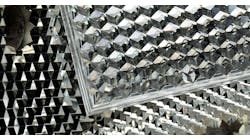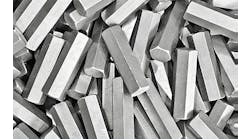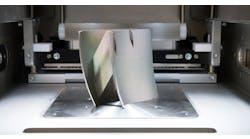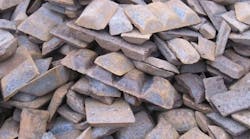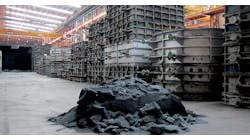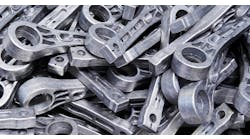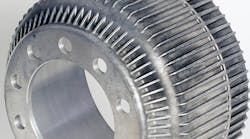Accuride Corporation has acquired a patented metal-matrix composite technology it is applying to develop lightweight brake drums for heavy-duty trucks. The announcement came in a presentation to the commercial vehicle aftermarket industry, which is the primary market for Accuride’s steel and aluminum wheels and Gunite-brand wheel-end components and assemblies.
“Over the past few years, we have invested in processes and technologies that help our customers remain competitive and compliant,” president and CEO Rick Dauch stated. “Through our lightweight MMC brake drum development and wheel lightweighting programs, we’re focused on creating industry-leading technologies that provide our customers with solutions to the requirements of increasingly stringent fuel economy and emissions regulations.”
The brake drum Accuride is developing consists of a cast aluminum design with a selectively reinforced wear surface formed by the MMC. The metal alloy and the matrix material were not described. The brake drums would be suitable for commercial vehicles, off-highway vehicles, and military vehicles, the group noted.
Accuride described its development efforts as an 18-24 month program. “We are currently testing manufacturability and evaluating options for friction materials,” a company spokesman offered. “We think it has enormous potential.”
Metal-matrix composites are formed from two or more material components, at least one of which is a metal alloy, while the other(s) may be a ceramic or organic compound. Aluminum, magnesium, and titanium are frequently chosen as the alloy component in products developed for lightweighting applications.
In the next step, the metal is infused with a reinforcing material that creates an embedded “matrix.” Carbon or graphite fibers are frequently used to form the matrix, adding structural integrity to the alloy.
Accuride acquired the patented technology last year from Century-3 Plus L.L.C. as part of its efforts to develop lightweight wheel-end components for its Gunite brand, to improve weight, fuel, and operating cost savings for customers.
Century-3 Plus is a division of Century Inc., a Traverse City, MI, manufacturer that has conducted materials research for the U.S. Dept. of Defense, including MMC brake drums for tactical vehicles.
As outlined by Accuride, the patent-protected brake drum it is developing weighs approximately 61 lb., thereby offering a significant weight reduction over standard cast steel brake drums – up to 100 lb./axle, or approximately 300 lb. for a three-axle Class 8 truck. “The lightweight MMC brake drum also has demonstrated more rapid heat dissipation, improved braking performance and a longer lifespan than traditional cast drums,” according to the group’s announcement.
In addition to weight savings, the MMC brake drum is anticipated to offer longer service life to fleet operators, reduced stopping distance, and increased payloads.


